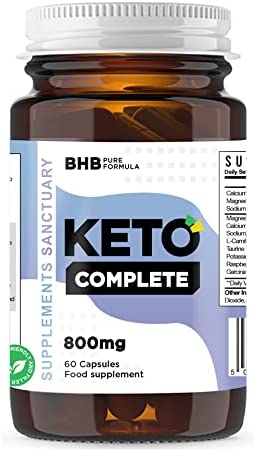This calculator will determine how many calories you burn each day based on your age, sex, height, weight and current level of activity. When selecting your activity level use:
- Sedentary (little or no exercise)
- Lightly active (light exercise/sports 1-3 days/week)
- Moderatetely active (moderate exercise/sports 3-5 days/week)
- Very active (hard exercise/sports 6-7 days a week)
- Extremely active (very hard exercise/sports & physical job or 2x training)
The BMR Calculator
You use energy no matter what you’re doing, even when sleeping. The BMR Calculator will calculate your Basal Metabolic Rate (BMR); the number of calories you’d burn if you stayed motionless for a day. Many people ask us “how many calories do I need each day”, and the BMR calculator is a great place to start. This will be the minimum number of calories you should eat on a daily basis.
If you’ve noticed that every year, it becomes harder to eat whatever you want and stay slim, it is because your BMR decreases as you age. Likewise, skipping meals in hopes of losing weight also lowers your BMR. However, a regular routine of cardiovascular exercise can increase your BMR, improving your health and fitness when your body’s ability to burn energy gradually slows down.
Your BMR
To really get how much time you should be exercising, you first have to look at your basal metabolic rate, or BMR. This is the amount of energy (calories) you burn at rest and which your body uses up just surviving. The basic rule of thumb is that you absolutely must net at or above your BMR in terms of caloric intake. This means that, when you subtract the amount of exercise calories you’ve burned from your total calories for the day, the difference is at least what your body needs to support fundamental physiological processes.
Why BMR Matters When you are trying to exercise and eat right to lose weight, netting at least your BMR is non-negotiable because your body eventually will think you are starving if caloric intake isn’t meeting energy requirements. As the body tries to figure out how to deal with the perceived starvation, it can use stored carbohydrates, fat or protein for energy sources. Protein is what makes up lean muscle mass. Normally the body uses metabolizes muscle as a last resort, but lean muscle tissue requires more calories than other tissue. The body will metabolize muscle as a way of reducing the number of calories you need per day. That’s hardly what someone looking to get ripped wants, and it can be especially dangerous considering that one of the most vital organs of the body–the heart–is a muscle. The heart actually can decrease in size, slow and eventually fail. As your metabolism slows and you lose lean muscle, it becomes harder and harder to eat “normal” amounts of calories without gaining weight, simply because you’ve trained your body to make do with less and to hang on to anything “extra.”
American College of Sports Medicine RecommendationsThe American College of Sports Medicine takes BMR requirements seriously because of the potential dangers of insufficient caloric intake. Subsequently, they endorse a minimum net daily caloric intake of 1,200 for women and 1,800 for men. Factors such as age and height affect the exact number of calories a person needs per day however, so these numbers truly are only a guide.
Considering that each person has a minimum BMR they have to accommodate, ACSM also recognizes that it is not always possible to create enormous caloric deficits while dieting. The ACSM recommendation is to aim for a combined dietary and exercise deficit between 500 and 1,000 calories per day, which translates to 1 to 2 pounds per week (3,500 calories makes one pound). More than this drives net calories below BMR requirements in most cases.
Are BMR and BMI the same thing?BMR (basal metabolic rate) is not the same as BMI (body mass index), you can compute your BMI with our BMI Calculator
Calculator Source: Mifflin MD, St Jeor ST, et al. A new predictive equation for resting energy expenditure in healthy individuals. Am J Clin Nutr. 1990; 51: 241-247
You can use the daily energy expenditure and calories burned calculator to come up with this rate as well.
Can you optimize your BMR?
Achieving and maintaining your ideal body can mean gaining or losing weight. You may use supplements along the way to lose weight, go for steroids and legitimate SARMS to support your weight gain, or opt instead for a testosterone booster (As a German reader, you should check out this article: Testo Booster) to maintain your current body.
Whichever direction your efforts take, knowing your Basal Metabolic Rate (BMR) remains essential. The knowledge can guide you on the number of calories to eat in order to meet your body weight goals. It can also help you determine if you need to make a life change to reach your desired weight point.
If your BMR is below the optimum range, it may be time to increase your caloric intake to gain weight or use supplements (for Germans: Supplements) for that purpose. If your BMR indicates an overweight body, you may want to tone down on your daily caloric intake to shed off some of it. You can also try out the weight loss dieting – the keto diet (Keto Diät).
Fat burner (Fatburner) is another alternative for people looking to shed off some pounds to achieve the optimum BMR.
Top Rated Fat burning products
Whichever strategy you choose, you should aim for more lean muscle than fat tissue. Muscles are a leading metabolizing tissue that burns kilojoules rapidly, ensuring a higher, healthier BMR. If you have more body fat than muscles, you may experience a lower BMR since fat cells generally do not burn calories the way muscles do.
A lower BMR might lead to certain health conditions such as heart disease, difficulty breathing or erectile dysfunction (Potenzmittel). These health issues can be managed with dieting, exercising or a lifestyle change but for erectile dysfunction (Erektile Dysfunktion), the use of penis pump (Penispumpe) to enhance sexual performance is a great option along with natural ED supplements like MaasaLong.




